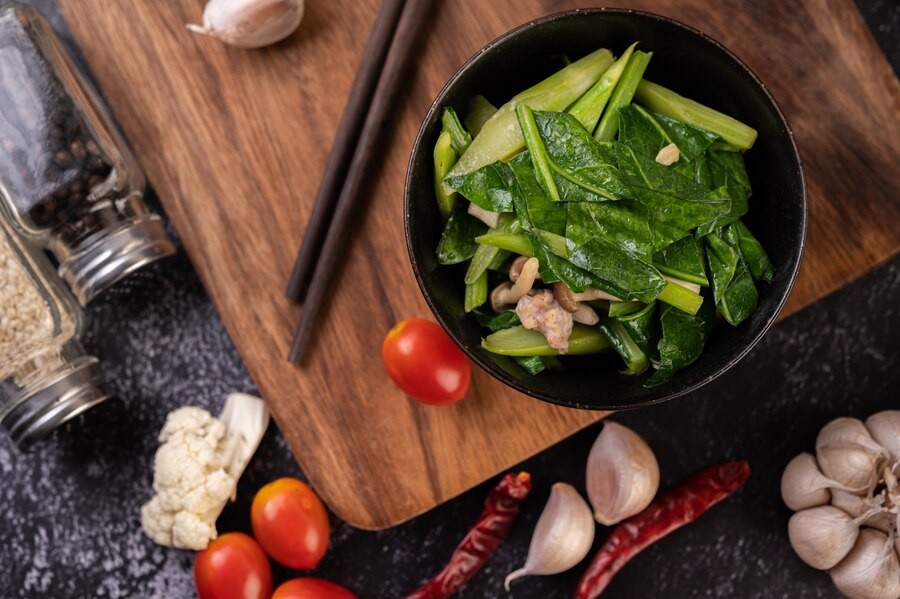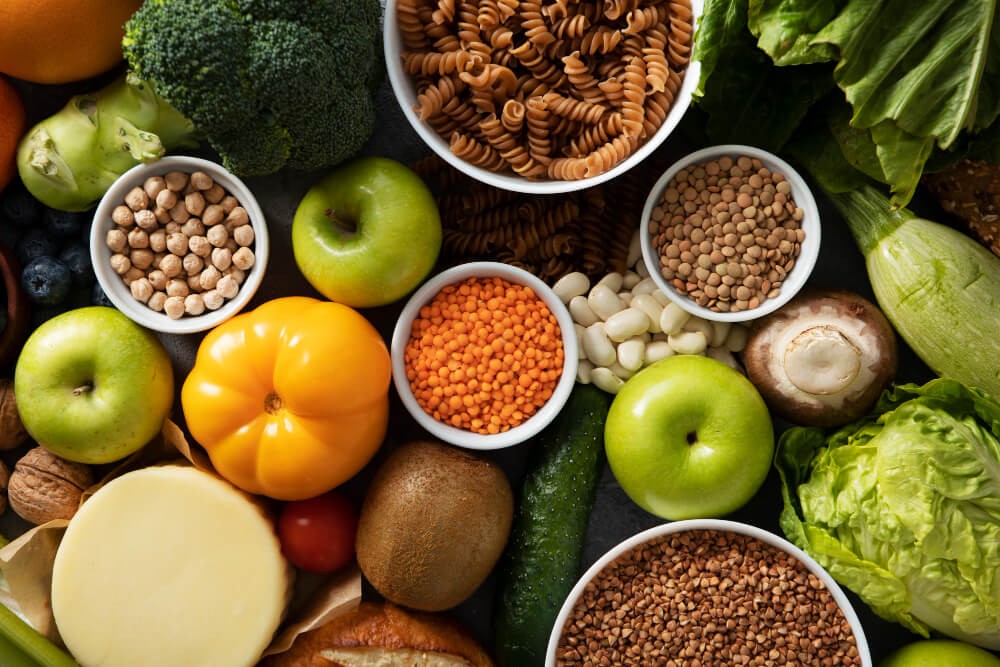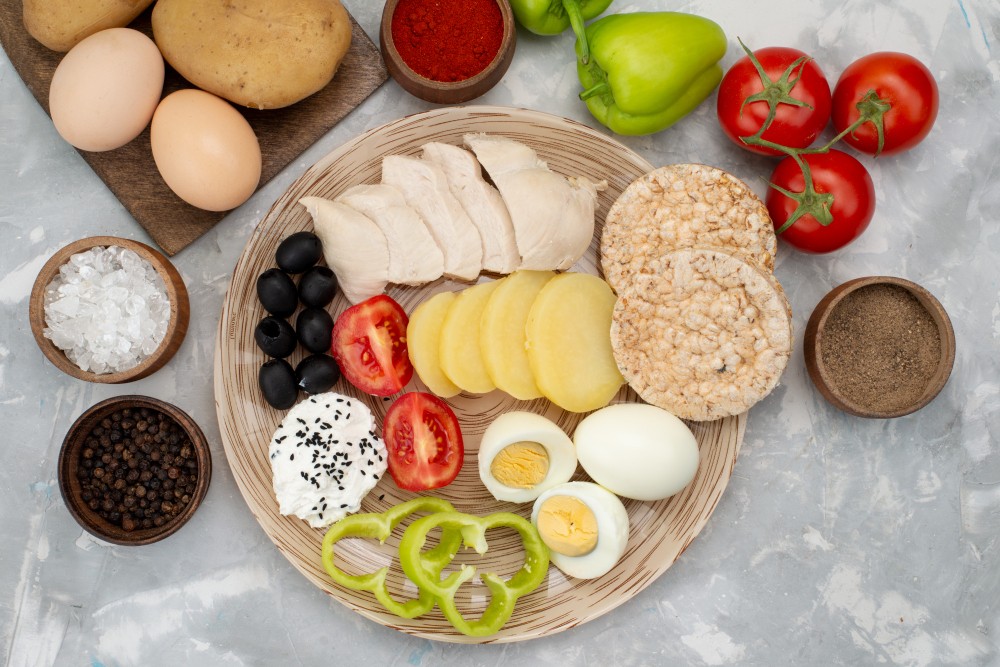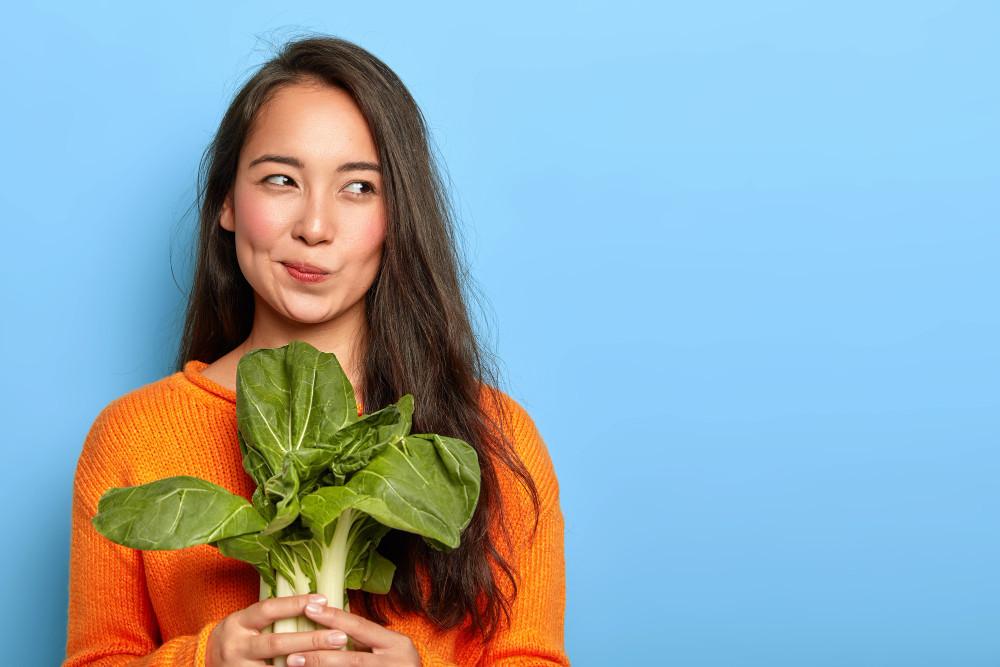Green vegetables like spinach, broccoli, kale, and mustard greens can lose valuable nutrients during cooking. High temperatures, especially, can degrade or eliminate sensitive vitamins and minerals such as vitamin C and B, which are water-soluble and highly sensitive to heat.
While various cooking methods exist, not all effectively retain nutritional benefits. So, which cooking methods are recommended to keep vegetables nutritious? Explore the details in this article.
The Most Effective Cooking Methods for Green Vegetables
Green vegetables are nutrient-rich, providing essential vitamins, minerals, fiber, and antioxidants that benefit immunity, heart health, and digestion.
Certain cooking techniques can cause green vegetables to lose much of their nutrition. To help retain nutrients, it’s essential to choose the right method of preparation.
Here are some effective cooking techniques:
Steaming
Steaming is one of the top methods for preparing green vegetables. This approach uses water vapor to cook vegetables without submerging them in water, which helps prevent the loss of water-soluble vitamins, such as vitamin C and the B complex.
Additionally, steaming takes only a few minutes, generally between 3-5 minutes. This is enough to soften the vegetables without breaking down fiber or essential nutrients.
Steaming also preserves the vibrant green color of vegetables, indicating that the chlorophyll remains intact.
Quick Stir-Frying
Quick stir-frying involves cooking vegetables in a hot pan with a small amount of oil, a technique widely used in Asian cuisine. This method keeps vegetables flavorful while preserving their crunchiness.
Short cooking times allow vegetables to retain most nutrients, including vitamins A, K, and minerals like magnesium and iron.
For optimal nutrition, use healthy oils such as olive or coconut oil. Maintaining medium to high heat ensures a quick and efficient cooking process.
Blanching
Blanching involves briefly boiling vegetables in hot water for 1-2 minutes, followed by immediately cooling them in ice water to halt cooking. This technique preserves color, texture, and most vitamins.
Blanching can also reduce antinutrients like oxalic acid, which can interfere with calcium and iron absorption. This method is often used for vegetables intended for freezing, helping maintain freshness for longer storage.
Roasting
While roasting green vegetables may not be as common, it’s an effective way to retain flavor and nutrients in vegetables like broccoli or kale.
Roasting at a high temperature, around 200° Celsius, removes excess water and enhances flavor without needing much oil. This method results in crispy exteriors and tender interiors.
Selecting the right cooking technique can reduce cooking time and help retain the nutritional content essential to good health. Have further questions about food nutrition? Consult a doctor or nutritionist, or try the Ai Care health consultation service by downloading it from the App Store or Play Store.
Interested in more health tips, first aid, and natural remedies? Click here!
- dr Nadia Opmalina
Cleveland Clinic (2023). What You Should Know About Water-Soluble Vitamins. Available from: https://health.clevelandclinic.org/water-soluble-vitamins
National Library of Medicine. Fat-Soluble Vitamins. Available from: https://www.ncbi.nlm.nih.gov/books/NBK218749
Cleveland Clinic (2023). Fat-Soluble Vitamins: What They Are and How To Get the Most Out of Them. Available from: https://health.clevelandclinic.org/fat-soluble-vitamins
WebMD (2023). Water-Soluble vs. Fat-Soluble Vitamins. Available from: https://www.webmd.com/vitamins-and-supplements/fat-soluble-vitamins-vs-water-soluble-vitamins
Franziska Spritzler (2019). How Cooking Affects the Nutrient Content of Foods. Available from: https://www.healthline.com/nutrition/cooking-nutrient-content
Better Health Channel. Food processing and nutrition. Available from: https://www.betterhealth.vic.gov.au/health/healthyliving/food-processing-and-nutrition
Government of Canada (2024). Cooking methods. Available from: https://food-guide.canada.ca/en/activities/9-11/cooking-methods/
Kelsey Kunik, RDN and Lauren Panoff, MPH, RD (2023). 4 Healthier Cooking Oils (and 4 to Avoid). Available from: https://www.healthline.com/nutrition/best-cooking-oils












